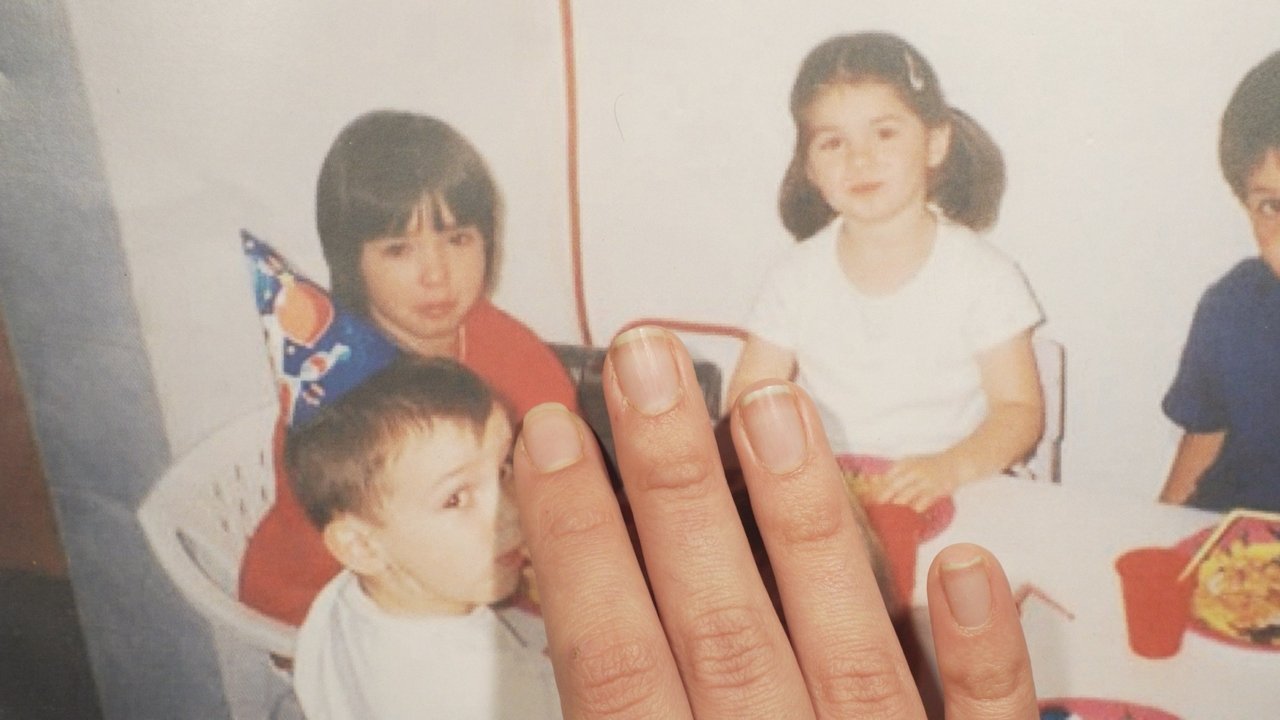
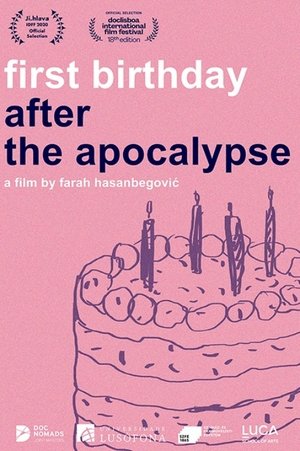
First Birthday After the Apocalypse(2020)
In her autobiographical documentary, the young director uses cartoon impressions, photographic memories, and the various stages of baking a cake to draw the viewer into her own stream of consciousness, and using images full of kindness, tenderness, and playfulness, she deals with the sadness that began during a children's birthday party many years ago.

Movie: First Birthday After the Apocalypse
Similar Movies
 6.6
6.62 or 3 Things I Know About Him(de)
What would your family reminiscences about dad sound like if he had been an early supporter of Hitler’s, a leader of the notorious SA and the Third Reich’s minister in charge of Slovakia, including its Final Solution? Executed as a war criminal in 1947, Hanns Ludin left behind a grieving widow and six young children, the youngest of whom became a filmmaker. It's a fascinating, maddening, sometimes even humorous look at what the director calls "a typical German story." (Film Forum)
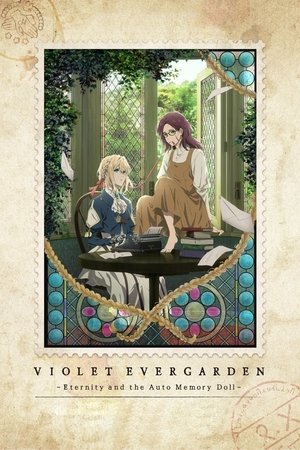 8.1
8.1Violet Evergarden: Eternity and the Auto Memory Doll(ja)
Isabella, the daughter of the noble York family, is enrolled in an all-girls academy to be groomed into a dame worthy of nobility. However, she has given up on her future, seeing the prestigious school as nothing more than a prison from the outside world. Her family notices her struggling in her lessons and decides to hire Violet Evergarden to personally tutor her under the guise of a handmaiden. At first, Isabella treats Violet coldly. Violet seems to be able to do everything perfectly, leading Isabella to assume that she was born with a silver spoon. After some time, Isabella begins to realize that Violet has had her own struggles and starts to open up to her. Isabella soon reveals that she has lost contact with her beloved younger sister, whom she yearns to see again. Having experienced the power of words through her past clientele, Violet asks if Isabella wishes to write a letter to Taylor. Will Violet be able to help Isabella convey her feelings to her long-lost sister?
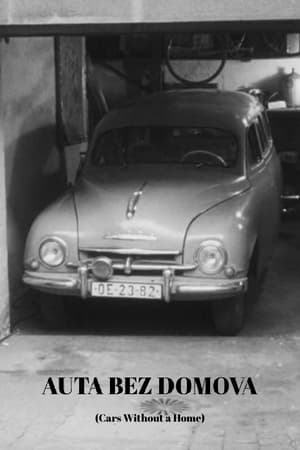 6.3
6.3Cars Without a Home(cs)
Jan Schmidt and Pavel Juráček turn their attention to the problem of Czechoslovakia's unloved cars in this whimsical documentary short.
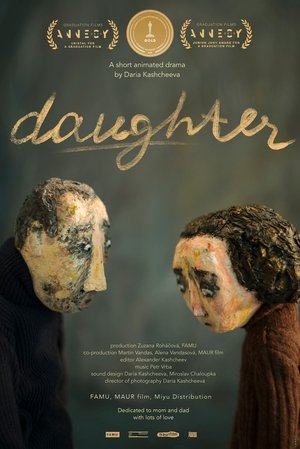 6.2
6.2Daughter(cs)
A young girl buries in her soul a memory of a painful moment, when as a child she brought home an injured bird and her father burdened by his own weight of worries didn’t notice her feelings and longing for understanding. The girl took her father’s reaction as indifference and closed herself in her inner world longing for her father’s love and its manifestations. Since that moment she and her dad continued to grow apart, and as an adult she is no longer able to accept his endearments. The father suffers from guilt and searches for a way back to his daughter, trying to revive their lost relationship.
 0.0
0.0Hawaii: Living on the Edge in Paradise?(en)
During the summer of 2018, hundreds of earthquakes shook the summit of Kiilauea, sparking the volcano's largest eruption in 200 years. To some, it was a disaster. To others, it was the goddess Pele's way of creating new aina (land). The Hawaiian peoples' resilience and cultural unity is a lesson in the true spirit of Aloha.
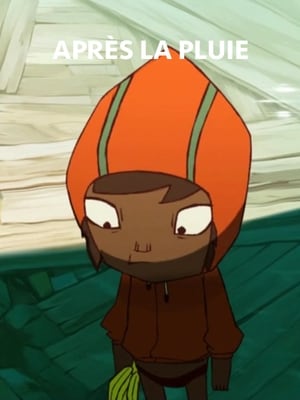 5.0
5.0After the rain(fr)
A child fishing in a puddle using bananas as bait catches a bigger fish than he can handle and flees with the giant fish in pursuit.
 0.0
0.0Judgment! XX Angel Rabbie(ja)
Humanity makes much progress through a combination of science and magic, until a large war breaks out. Many years later, the magical city of Sosarium (constructed on the Moon) sends an agent down to Earth to make sure history does not repeat itself as civilisation starts to rebuild itself. That agent is known as an Angel.
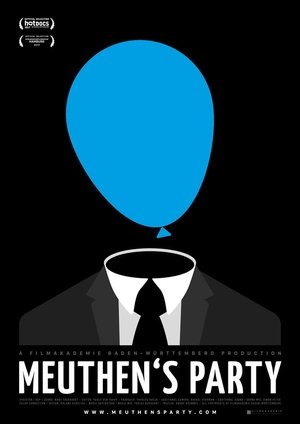 0.0
0.0Meuthen's Party(en)
MEUTHEN'S PARTY unmasks the rise of the provincial politician Dr. Jörg Meuthen who doesn't shy away from spreading racist sentiments with a smile on his face.
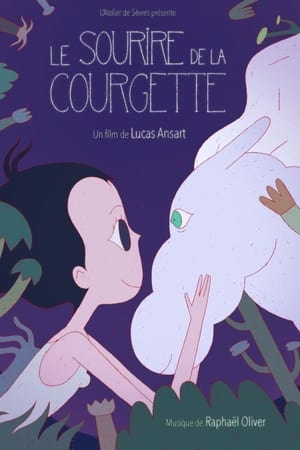 0.0
0.0The Zucchini's Smile(fr)
Myia and Aristote live from gluglu hunting. These cloud-animals allow them to grow courgettes in the desert. One day, Myia falls in love with one of them …
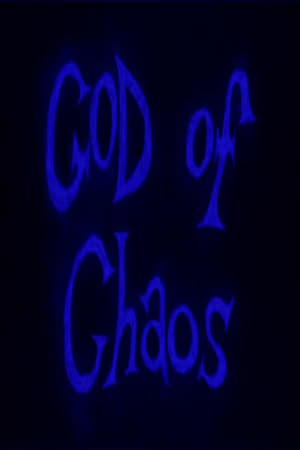 9.5
9.5God of Chaos(en)
A mysterious cult performs an ancient ceremony, inviting an otherworldly power into their earthly realm.
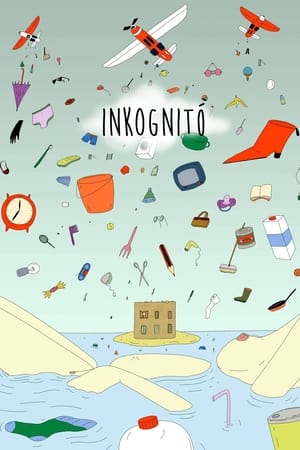 0.0
0.0Incognito(hu)
The main character is a young girl who sees the world around her as cold, depraved and ugly. She can’t and won’t fit in. One day, a strange cloud appears over her apartment, triggering a supernatural event.
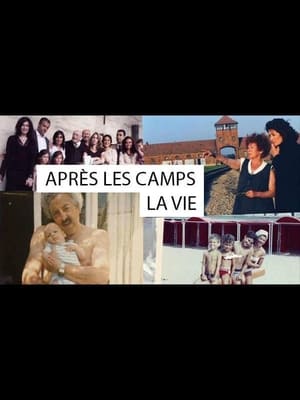 0.0
0.0After the camps, being alive...(fr)
For the first time, survivors talk about life after the camps. How does one return to a life that was interrupted with such violence? How does one reconstruct oneself when all or most of one’s family were butchered? How does one resume studies and earn a living in a society that had cast you out a few years earlier?
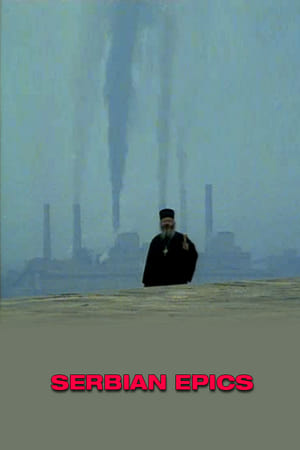 5.5
5.5Serbian Epics(en)
Paul Pawlikowski's award-winning documentary on life behind Serbian lines in Bosnia. The film observes the roots of the extreme nationalism which has torn apart a country and provides a chilling examination of the dangerous power of ancient nationalist myths.
 5.8
5.86-18-67(en)
6-18-67 is a short quasi-documentary film by George Lucas regarding the making of the Columbia film “Mackenna's Gold”. This non-story, non-character visual tone poem is made up of nature imagery, time-lapse photography, and the subtle sounds of the Arizona desert.
 0.0
0.0Huis Clos(fr)
The bourgeoisie is having a celebration in a round room where eating, sipping, and dancing is followed by dancing, sipping and eating. This could go round and round forever.
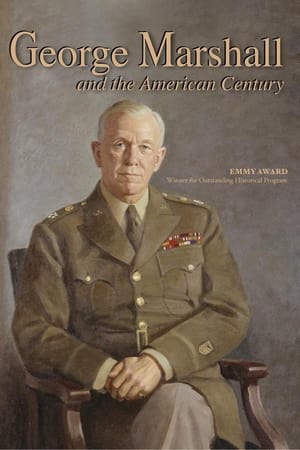 8.0
8.0George Marshall and the American Century(en)
He built the mightiest army in history and selected its leaders. Eisenhower, MacArthur and Patton all obeyed his commands. George Marshall was the only soldier ever to receive the Nobel Peace Prize.
Bums and Dogs(bs)
A hotel in the centre of town is a war-time home and refuge for many of Sarajevo's homeless people. Every morning they leave the hotel and wander around the destroyed city gathering again at the defunct hotel in the afternoon. This film follows their separate fates through the bitter comparing of images of the bums with those of dogs abandoned by their owners and now left et the mercy of the war ravaged streets of Sarajevo.
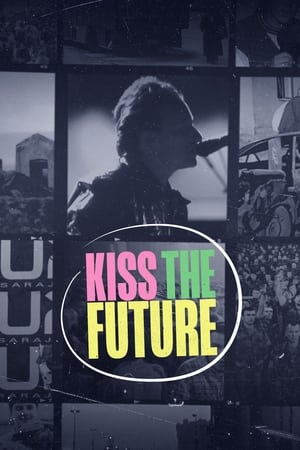 7.4
7.4Kiss the Future(en)
An exploration of the perils of nationalism and art’s role as a weapon of resistance and activism throughout the 1990s Siege of Sarajevo during the Bosnian War. Explore how art and music sustained hope, thanks in part to humanitarians and the band U2.
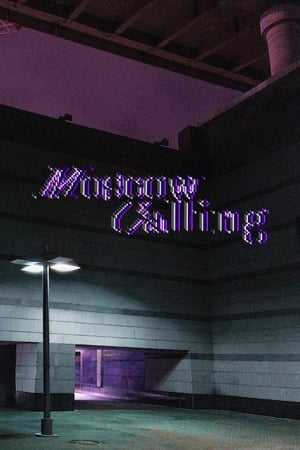 0.0
0.0Moscow Calling(ru)
The animated corpse of Moscow goes on after its inhabitants left. Filled with weeps and whispers of the mourning ghosts, torn apart with phone calls from distant countries and unfamiliar sounds, emotionally devastated and deserted, the city attempts to reconcile with its own voice.
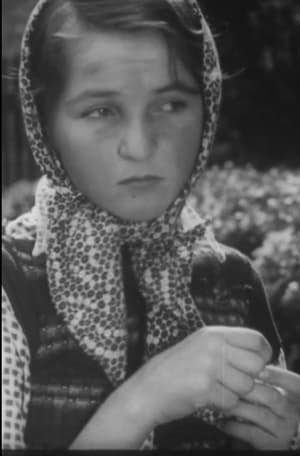 0.0
0.0Let All Children Smile(ro)
The film's protagonists are the orphaned children taken into custody by the state and institutionalized at Children's House no. 6 from Bucharest. For Mészáros, the concern for the situation of children left orphaned during the Second World War is autobiographical: the director directly experienced the absence of parents in her own childhood.



